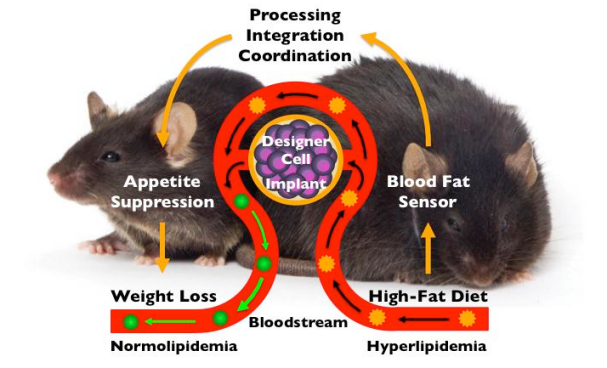Dec 02, 2013
A genetically engineered weight-loss implant
Via KurzweilAI
ETH-Zurich biotechnologists have constructed an implantable genetic regulatory circuit that monitors blood-fat levels. In response to excessive levels, it produces a messenger substance that signals satiety (fullness) to the body. Tests on obese mice revealed that this helps them lose weight.

Genetically modified cells implanted in the body monitor the blood-fat level. If it is too high, they produce a satiety hormone. The animal stops eating and loses weight. (Credit: Martin Fussenegger / ETH Zurich / Jackson Lab)
23:25 Posted in Neurotechnology & neuroinformatics, Physiological Computing | Permalink | Comments (0)







The comments are closed.